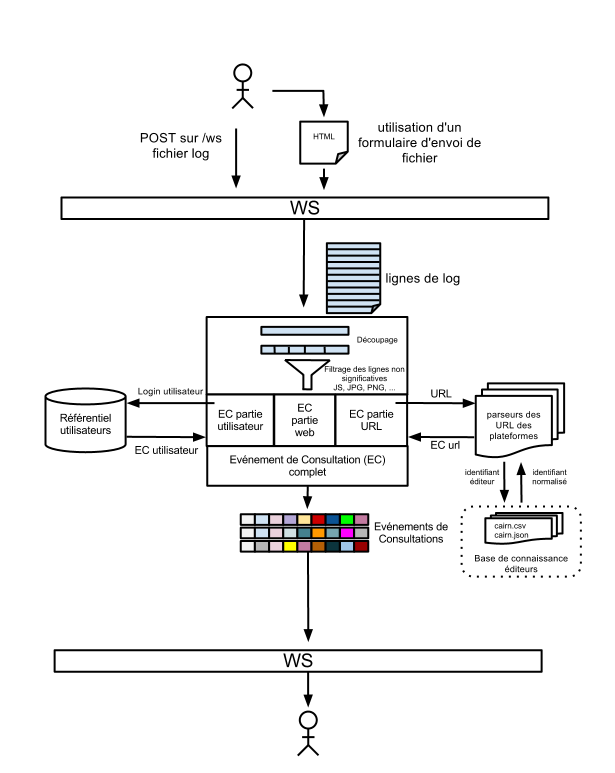# Application core
Developper-oriented documentation for ezPAARSE's core. The documentation dedicated to contributions for parsers, pkbs and scrapers can be found in this section.
# Technologies used by ezPAARSE
- nodejs (opens new window) for the core of ezPAARSE (advanced streaming capabilities and performance).
- git (opens new window) to manage knowledge bases and source code.
# How does the ezPAARSE engine work?
Simplified schemas of the internal architecture (opens new window) and general architecture (opens new window) are also available.

# ezPAARSE's monitoring
The following options can be used to run ezPAARSE.
--memory: shows the memory consumption of the ezPAARSE process every 5 seconds--lsof: displays the number of open file descriptors every 5 seconds
Example :
. ./bin/env
node app.js --memory
# Launching the ezPAARSE's unit tests
Use the makefile to launch the tests:
make test
To test a specific function, use mocha and indicate the path of the test file as a parameter
Eg for testing custom formats:
. ./bin/env
mocha ./test/custom-formats-test
To perform only one functionality test, use mocha and set the path of the test file as a parameter and then specify (with -g) the test number (two figures) like @xx.
For example, for the second test about the custom formats:
. ./bin/env
mocha ./test/custom-formats-test -g @02
# Generate a new ezPAARSE version
To generate a new version of ezPAARSE you need to be member of the ezPAARSE Team.
If you are not a member, you can submit a pull request on github (opens new window).
For the ezPAARSE Team:
- Check you are on the master version or run a
git checkout master - Use npm to generate the new version by using the appropriate options to tag the version
npm version [<newversion> | major | minor | patch | premajor | preminor | prepatch | prerelease | from-git]
Example :
npm version patch
git push
git push --tags